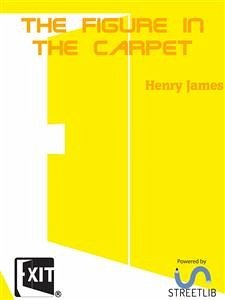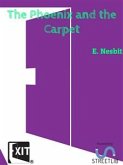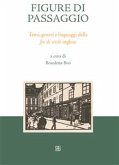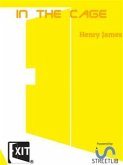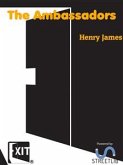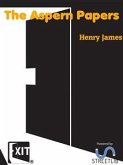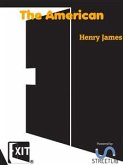CHAPTER I
I had done a few things and earned a few pence—I had perhaps even had time to begin to think I was finer than was perceived by the patronising; but when I take the little measure of my course (a fidgety habit, for it’s none of the longest yet) I count my real start from the evening George Corvick, breathless and worried, came in to ask me a service. He had done more things than I, and earned more pence, though there were chances for cleverness I thought he sometimes missed. I could only however that evening declare to him that he never missed one for kindness. There was almost rapture in hearing it proposed to me to prepare for The Middle, the organ of our lucubrations, so called from the position in the week of its day of appearance, an article for which he had made himself responsible and of which, tied up with a stout string, he laid on my table the subject. I pounced upon my opportunity—that is on the first volume of it—and paid scant attention to my friend’s explanation of his appeal. What explanation could be more to the point than my obvious fitness for the task? I had written on Hugh Vereker, but never a word in The Middle, where my dealings were mainly with the ladies and the minor poets. This was his new novel, an advance copy, and whatever much or little it should do for his reputation I was clear on the spot as to what it should do for mine. Moreover if I always read him as soon as I could get hold of him I had a particular reason for wishing to read him now: I had accepted an invitation to Bridges for the following Sunday, and it had been mentioned in Lady Jane’s note that Mr. Vereker was to be there. I was young enough for a flutter at meeting a man of his renown, and innocent enough to believe the occasion would demand the display of an acquaintance with his “last.”
I had done a few things and earned a few pence—I had perhaps even had time to begin to think I was finer than was perceived by the patronising; but when I take the little measure of my course (a fidgety habit, for it’s none of the longest yet) I count my real start from the evening George Corvick, breathless and worried, came in to ask me a service. He had done more things than I, and earned more pence, though there were chances for cleverness I thought he sometimes missed. I could only however that evening declare to him that he never missed one for kindness. There was almost rapture in hearing it proposed to me to prepare for The Middle, the organ of our lucubrations, so called from the position in the week of its day of appearance, an article for which he had made himself responsible and of which, tied up with a stout string, he laid on my table the subject. I pounced upon my opportunity—that is on the first volume of it—and paid scant attention to my friend’s explanation of his appeal. What explanation could be more to the point than my obvious fitness for the task? I had written on Hugh Vereker, but never a word in The Middle, where my dealings were mainly with the ladies and the minor poets. This was his new novel, an advance copy, and whatever much or little it should do for his reputation I was clear on the spot as to what it should do for mine. Moreover if I always read him as soon as I could get hold of him I had a particular reason for wishing to read him now: I had accepted an invitation to Bridges for the following Sunday, and it had been mentioned in Lady Jane’s note that Mr. Vereker was to be there. I was young enough for a flutter at meeting a man of his renown, and innocent enough to believe the occasion would demand the display of an acquaintance with his “last.”

